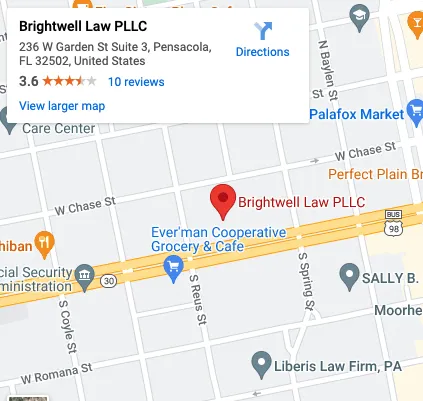Securing Your Assets in a Divorce with Confidence
Are you facing the challenging question, “How do I protect my assets in a divorce?” This question often arises in the midst of one of life’s most stressful experiences. Divorce not only signifies the end of a marriage but also the beginning of a complex process of dividing shared lives, including assets. In these times, navigating through the murky waters of asset division requires the guidance of an experienced attorney. The right legal support can be crucial in protecting your financial stability and future.
Asset protection in divorce is a critical aspect of family law that deals with the fair and equitable division of assets accumulated during a marriage. This may include real estate, investments, retirement accounts, and personal property. Understanding how to navigate these waters is essential. An experienced family attorney can help you make informed decisions, ensuring that your interests are protected throughout the divorce process.
Here’s a Quick Summary of this Article:
- Identifying Marital vs. Non-Marital Assets: Understanding the distinction between marital and non-marital assets is crucial for fair asset division in Pensacola, Florida. Accurate identification is key to protecting entitlements after divorce.
- Gathering Essential Financial Documents: Collecting financial documents is vital for building a strong case, as they offer an accurate snapshot of financial status and facilitate fair negotiations.
- Establishing Individual Financial Accounts: Opening separate bank, credit, and investment accounts is crucial for financial independence during divorce. Managing joint accounts and debts ensures transparency and control.
- Prenuptial and Postnuptial Agreements: These agreements clarify asset division but require correct drafting for enforcement in Pensacola. Fair, reasonable terms are essential.
- Consulting a Divorce Attorney: Seeking guidance from a knowledgeable attorney is vital. They navigate the process, manage documentation, and represent your interests, including custody and support plans.
- Upholding Transparency: Honest declaration and handling of assets are key for a fair division. Transparency prevents legal issues and ensures fairness in Pensacola divorce cases.
Step 1: Identifying Marital vs. Non-Marital Assets
In Pensacola, Florida, safeguarding assets during divorce begins by distinguishing between marital and non-marital assets, crucial for fair division. This initial step is crucial as it lays the foundation for equitable asset division under Florida’s legal system. Marital assets encompass property, earnings, and debts acquired during marriage, while non-marital ones are acquired before or separately during marriage, like inheritance or gifts. Pinpointing these assets is strategic, determining what you keep post-divorce. Assets can shift: inheritance pre-marriage might become partially marital if used or improved with joint funds. The complexity rises when assets mix, like merging accounts or using inheritance for joint investments, blurring the distinction.
Understanding these distinctions and documenting asset history is vital. A family law attorney’s expertise is often necessary to ensure proper categorization and protection during divorce. Accurate identification sets the stage for a more equitable asset division.
Step 2: Gathering Essential Financial Documents
After identifying your marital and non-marital assets, the next crucial step in the asset protection process in a divorce is to meticulously gather all relevant financial documents. This comprehensive collection is not just a routine task; it’s a critical component that can significantly influence the outcome of your divorce proceedings.
The types of documents you should gather include, but are not limited to:
- Bank Statements: Gather statements from all accounts, joint and individual, to track cash assets and detect suspicious withdrawals or deposits that may indicate asset concealment.
- Investment Account Statements: Investment accounts like stocks, bonds, mutual funds, and retirement accounts such as IRAs and 401(k)s are considerable marital assets. Their valuation can be intricate, particularly if they have gained or lost value throughout the marriage.
- Property Deeds and Mortgage Documents: Real estate, a significant asset in marriage, requires meticulous documentation including deeds, mortgage statements, and refinancing documents. In Pensacola, where property values can fluctuate greatly, accurate and up-to-date valuations are crucial.
- Tax Returns: Tax returns from the past three years give a detailed overview of your finances, including income, interest, dividends, capital gains, and deductions. These factors are essential in assessing the financial standing of both parties.
- Loan Documents: Existing loan documents are necessary to understand liabilities in the marriage, particularly in Florida’s equitable distribution process where debt is treated as a marital asset.
- Insurance Policies: Insurance policies can be relevant, especially if they have cash value or are tied to assets being divided.
- Business Records: In Pensacola, if you or your spouse owns a business, it is crucial to obtain records such as profit and loss statements, balance sheets, and business tax returns.
- Personal Property Valuations: For items like jewelry, art, collectibles, or other valuables, it’s advisable to have current appraisals or receipts.
Gathering these documents serves several key purposes. Firstly, it creates a clear and indisputable record of your financial standing, vital for fair negotiations. Secondly, it prevents the other party from hiding or misrepresenting assets. Lastly, in contentious situations, comprehensive documentation can sway court decisions.
In essence, collecting and organizing these financial documents is the cornerstone of your case in a Pensacola divorce. It’s a meticulous step often requiring professional guidance to accurately represent and safeguard every aspect of your financial life.
Step 3: Establishing Individual Financial Accounts
In the process of a divorce, establishing individual financial accounts is a strategic and crucial step, especially if you have joint accounts with your spouse. This move is about more than just separating finances; it’s about establishing autonomy and clarity, which are vital for asset protection during the divorce process.
- Opening Individual Bank Accounts: Set up checking and savings accounts in your name only. This separation safeguards your income from any unexpected actions by your spouse on joint accounts.
- Securing Credit in Your Own Name: If you lack credit cards in your name, apply now. Building independent credit is pivotal post-divorce and prevents your spouse from incurring debts that might involve you.
- Establishing Separate Investment Accounts: Consider individual investment accounts to plan for the long term. Ensuring new post-separation investments are solely in your name is crucial for fair asset division.
- Dividing Existing Joint Accounts: Consult your attorney to fairly split funds in joint accounts. Temporarily freezing them might be necessary to prevent hasty financial decisions.
- Managing Joint Debts: Collaborate with your attorney on debt management—clearing debts before finalizing the divorce or equitably dividing them is crucial. Remember, Pensacola treats debts during marriage as joint responsibilities.
- Transparency and Documentation: Maintain transparency with your spouse and document all transactions. Openness prevents accusations of hiding assets, crucial for smooth divorce proceedings.
Work with your attorney to determine the best course of action, whether it’s paying off debts before the divorce is finalized or dividing them equitably. Remember, in Pensacola, debts incurred during the marriage are considered joint responsibilities.
Step 4: Utilizing Prenuptial and Postnuptial Agreements
In the context of a divorce in Pensacola, prenuptial and postnuptial agreements stand as pivotal tools for asset protection. These legal documents, crafted either before (prenuptial) or after (postnuptial) marriage, can play a significant role in determining the outcome of asset division in a divorce.
Prenuptial Agreements
Crafted before marriage, these outline asset division, especially beneficial when one or both parties bring substantial assets, prior children, or significant debt. A well-drafted prenup in Pensacola offers a clear, legally binding plan for asset division, simplifying the process and safeguarding individual assets from equitable distribution.
Postnuptial Agreements
Similar to prenups but made after marriage, they address significant financial changes during marriage, like inheritance or career growth. In Pensacola, postnups protect newly acquired assets and address evolving financial circumstances.
Legal Considerations
For enforceability, these agreements in Pensacola require proper drafting, full asset disclosure, fair terms, absence of coercion, and written signatures from both parties. A knowledgeable attorney in Florida’s family law should review them to ensure legal compliance and reflect your intentions accurately.
Flexibility and Amendments
These agreements aren’t rigid and can be amended with mutual agreement, adapting to changing life circumstances, provided the changes meet legal standards, offering Pensacola couples flexibility in asset protection strategies.
Clarity and Peace of Mind
Prenups and postnups offer clarity, reducing disputes and lengthy legal battles by outlining asset division. They grant peace of mind, assuring asset protection regardless of marriage changes.
Addressing Marital and Non-Marital Assets
These agreements excel in distinguishing between marital and non-marital assets, crucial in safeguarding non-marital assets from being mistakenly considered marital property during divorce.
Step 5: Seeking Advice from a Divorce Attorney
Hiring an experienced divorce lawyer is vital for safeguarding your assets in a divorce. These attorneys possess in-depth knowledge of Florida’s family law, offering invaluable guidance throughout the complex asset division process. Their expertise in local legal practices and negotiation skills ensures favorable settlements while providing comprehensive support beyond legal representation.
Their role extends beyond asset division, especially in cases involving children, as they craft custody and support plans considering financial implications. Providing emotional support and objective counsel, these attorneys offer invaluable assistance during this challenging period. Their professional advice is essential for informed decisions shaping your future, making their guidance an indispensable asset in your Pensacola divorce.
Step 6: Upholding Transparency in Asset Division
The final step in protecting your assets is to approach the division process with honesty and integrity. Avoid hiding or dissipating assets, as transparency is key to a fair and just resolution in your Pensacola divorce court.
Call Our Pensacola, Florida Family Attorney Now
Facing a divorce can be overwhelming, especially regarding your financial security. If you’re seeking experienced assistance in protecting your assets, our legal team is here to support you. We specialize in navigating the complexities of safeguarding your financial rights during this challenging period.
Beyond divorce asset protection, our firm offers comprehensive guidance in family law, including estate planning for securing your family’s financial future. Additionally, we provide expert advice and representation in landlord-tenant law and handle probate matters with care and efficiency.
Your well-being and financial stability are our top priorities. Contact us today for dependable legal support in these critical areas of your life. With our assistance, you can forge a path that not only safeguards your assets but also honors your wishes, laying the groundwork for a secure and prosperous future.



